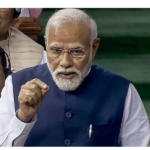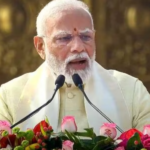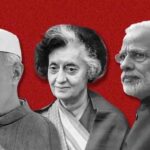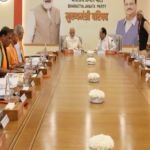In the political landscape of India in 2024, significant developments unfolded as key regional leaders expressed their intentions to contest the upcoming general elections. Mamata Banerjee, the Chief Minister of West Bengal, emerged as a prominent figure in this scenario, making headlines with her decision to run independently.
Banerjee, known for her strong regional influence and charismatic leadership, had been an instrumental force in West Bengal politics for years.
Lok Sabha Elections 2024: Samajwadi Party-Congress Sign Deal, Akhilesh Yadav Announces Big Change

The Chief Minister’s decision to break away from traditional alliances and contest the elections on her own marked a departure from the conventional political strategies. In a press conference, Banerjee cited the prolonged seat distribution process within the INDIA bloc as a major factor behind her decision.
She expressed frustration with the Congress party, attributing the delays and complications in seat allocation to their actions. This move by Banerjee highlighted the internal struggles and conflicts within political alliances, emphasizing the challenges faced in forming a united front against rival parties.
While Banerjee’s decision to go solo may have surprised some, it also showcased her determination and confidence in her regional appeal. The political landscape in West Bengal had witnessed significant shifts in recent years, and Banerjee’s decision reflected her desire to maintain autonomy and address the specific needs of her state. As a seasoned politician, she understood the dynamics of coalition politics but seemed willing to navigate the electoral terrain independently.
Lok Sabha Elections 2024: Samajwadi Party-Congress Sign Deal, Akhilesh Yadav Announces Big Change

Another noteworthy development came from Punjab, where Chief Minister Bhagwant Maan announced the Aam Aadmi Party’s (AAP) ambitious plan to contest all 15 seats in the Lok Sabha Assembly. The AAP, known for its anti-corruption stance and focus on governance reforms, had gained traction in various states. Maan’s declaration signaled the party’s intent to expand its footprint and influence at the national level.
The decision by both Mamata Banerjee and Bhagwant Maan reflected the evolving dynamics of Indian politics, characterized by a blend of regional aspirations and the pursuit of broader national agendas.

As the country awaited the 2024 general elections, these developments added layers of complexity to the political narrative, showcasing the diversity of strategies employed by regional leaders in their quest for power and representation on the national stage.
The ensuing electoral campaign promised to be a dynamic and closely watched affair, with these regional leaders playing pivotal roles in shaping the future trajectory of Indian politics.











